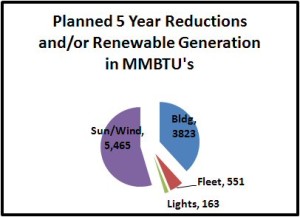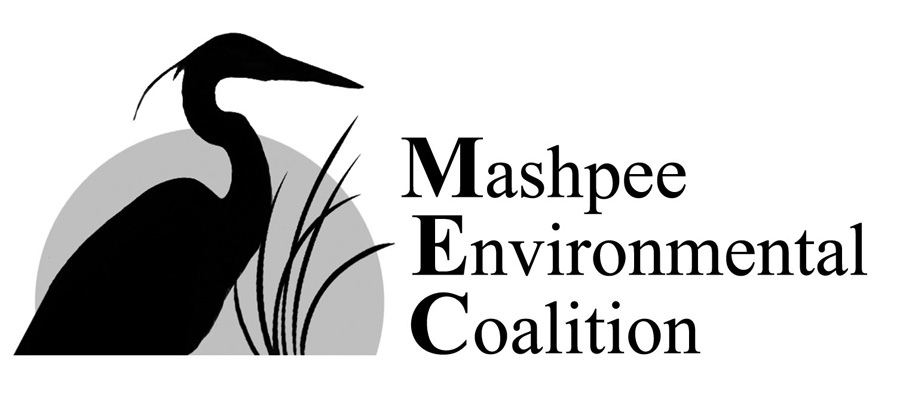by MEC | Jun 6, 2014 | Current Topics, Right-of-Way Herbicides
While our County Agencies talk to establishing individual town negotiations with transmission line owners on this threat to our potable water supply, they are fostering a divide and conquer approach threatening progress on this important health threat.
Visit for additional information.
The statement below is NStar’s March 2011,not very encouraging, position
NSTAR is the largest Massachusetts-based electric and gas utility with almost a million and a half customers in Eastern and Central Massachusetts . It has released this statement about suspending the use of herbicides for much of this year.
NStar is extending its voluntary moratorium on herbicide use through 2011, demonstrating once again the company’s commitment to working cooperatively with the Cape Cod Commission and other local officials. This latest extension will allow sufficient time for the completion of a comprehensive study to quantify and ultimately reduce herbicide and pesticide use by all users on Cape Cod.
In addition to improved mapping of private wells in 2010, progress has also been made in identifying the primary sources of herbicide and pesticide use on Cape Cod. Results to date confirm NSTAR’s IVM program represents a very small portion of the total Cape-wide herbicide use, though there’s more work to be done in documenting and sharing all of the facts. Therefore, NSTAR supports the commissioning of a comprehensive year-long study that further investigates the sources and effects of herbicide and pesticide use on the Cape and establishes guidelines toward its reduction. To lessen the appearance of undue influence on the study, NSTAR will not provide funding and will have only limited involvement in it.
With this latest extension of its voluntary herbicide moratorium comes the need for NSTAR to resume clear-cut mowing on Cape Cod rights-of-way in 2011. Federal regulations require utilities to demonstrate their compliance with strict standards set forth after the Northeast blackout of 2003. Though integrated vegetation management programs are recognized nationwide as the best practice for right-of-way maintenance to meet ecological and reliability standards, clear-cut mowing will be NSTAR’s only viable option on Cape Cod this year. Work is underway to finalize the company’s plans to resume mowing and details will be shared with the affected towns as soon as they are available.
by MEC | Jun 6, 2014 | Current Topics, Storm Water
 Storm water, from its inception as rain or snow and via its travel as runoff across our lawns, roads and parking lots, adds to itself many forms of unwanted constituents from diverse sources. As it falls from the sky it adds an airborne contaminants to its makeup and then proceeds to include a variety of substances related to human activities.
Storm water, from its inception as rain or snow and via its travel as runoff across our lawns, roads and parking lots, adds to itself many forms of unwanted constituents from diverse sources. As it falls from the sky it adds an airborne contaminants to its makeup and then proceeds to include a variety of substances related to human activities.
Lawn fertilizer over-spills onto roads and driveways, the byproducts of automotive utilization such as exhaust, fluid leakage and brake pad wear combined with animal waste products plus many other items, when transported by storm water runoff, create a source of damage to our ground and surface waters that is a substantial threat. The impacts from this pollution source can be mitigated to varying degrees by the application of devices commonly identified as storm water best management practices. These devices are typically selected based upon site-specific conditions and available space.
 The typical storm drains found in area roadways and parking lots do nothing to reduce contamination levels and, in fact, are worse than allowing storm flow to discharge across a vegetative surfaces. Many storm water best management practices (BMP’s) rely upon root systems and microbes for contamination controls. In Mashpee several scientific studies have established links between storm water runoff and pollution of both fresh and estuarine surface waters.
The typical storm drains found in area roadways and parking lots do nothing to reduce contamination levels and, in fact, are worse than allowing storm flow to discharge across a vegetative surfaces. Many storm water best management practices (BMP’s) rely upon root systems and microbes for contamination controls. In Mashpee several scientific studies have established links between storm water runoff and pollution of both fresh and estuarine surface waters.
 Typical BMP’S include wet or dry detention ponds and stone or vegetated swales. With the acceptance of “Low Impact Development” (LID) techniques, the catalog of devices has added, among others, surface sand filters, tree filters and constructed gravel wetlands. Recent evaluations by the University of New Hampshire have highly rated the constructed gravel wetland.
Typical BMP’S include wet or dry detention ponds and stone or vegetated swales. With the acceptance of “Low Impact Development” (LID) techniques, the catalog of devices has added, among others, surface sand filters, tree filters and constructed gravel wetlands. Recent evaluations by the University of New Hampshire have highly rated the constructed gravel wetland.
by MEC | Jun 6, 2014 | Current Topics, Waste Water
The nutrient over-enrichment of our ponds and estuaries and the resultant noxious/harmful algae blooms that occur are fed, in a great degree, by the minimal treatment activity available from the many septic systems standard in our area. As the population grows the resultant sewage volume also grows increasing the intensity of the problem.
Over 30 years ago residents noted the declining water quality in our estuaries and engaged in a questioning and activism activity to understand and combat this obviously growing problem. Following a series of ″jawboning″ efforts and a series of town committees addressing the declining conditions a 1997 study was funded. That study confirmed the problem and established the need for a more in-depth review of the causal factors in order to develop a mitigation plan.
The Town of Mashpee Sewer Commission has undertaken the development of a a “Comprehensive Watershed Nitrogen and Wastewater Management Plan”. Baseline data for calendar year 2001 and data developed by Mashpee Volunteers beginning in 1997 with lab analyses by the School for Marine Science and Technology, UMASS, Dartmouth resulted in a 2004 technical report for Popponesset Bay followed a few years later for the Mashpee portion of Waquoit Bay. These reports were the basis for Massachusetts prepared documents outlining the current conditions and maximum levels allowable to restore our troubled waters. These reports known as ″Total Maximum Daily Loads″ are required by the Clean Water Act and must receive approval from the regional EPA to become an official regulatory requirement. This approval has been forthcoming.
Mashpee funded the remedial planning effort by over $500,000 ($405,140 authorized May and $40,000 authorized October of 1999), plus past and additional studies with continued volunteer water sampling mandating lab analyses. The planning is intended to provide a road-map to the eventual resolution to the serious and growing decay of our estuarine waters due to nutrient pollution.
An Environmental Notification Form (ENF) was submitted to the Executive Office of Environmental Affairs. The Secretary’s Certificate (November 9, 2001) requires a Draft and Final Environmental Impact Reports. The Certificate also notes the Project is subject to joint review with the Cape Cod Commission as a Development of Regional Impact. Engineering / Scientific Support Contracts have been negotiated and a “Community Advisory Committee” established.
The planning activity is ongoing at this time and has experienced significant difficulties along the way. One major glitch has been the reorganization of the Sewer Commission from a three member to a seven member Commission with only one of the original Commissioners retained. As infrastructure plans are developed they need to be tested by the scientific community for compliance to the computer models developed for our watersheds. At this time we have a mix of compliant and non-compliant potential approaches with costs that vary from approximately $250 million to $500 million.
In addition to the minor road blocks that should be anticipated for a project of this size and complexity, there are two major hurdles that should have been addressed long ago to establish a solid planning basis.
The first hurdle is the lack of any discussions towards an agreement from the watershed participants (Mashpee, Barnstable and Sandwich for Popponesset and Mashpee, Sandwich and Falmouth for Waquoit) relating to what share of each watershed´s allowable limit should be allotted to each watershed sharing town.
The second major hurdle is planning for acquiring the funding needed to design and construct the needed piping and treatment facilities. It appears the largest source of funding will be local and may be taxes, betterments, fees or other sources. As is likely, not all properties will require connection to a sewage treatment plant, yet theoretically all properties will benefit from restored and protected waters. This raises the question of who should pay and how.
Mashpee residents should learn all they can about this major endeavor that will have a major impact on their wallets and environmental ″Quality of Life″. MEC will continue to follow the progress of the wastewater remediation activity in Mashpee as a standard item in our quarterly newsletter.
by MEC | Jun 6, 2014 | Current Topics, Renewable Energy
Mashpee, as a Green Community, has committed to reduce energy consumption 20% or more over the 5 year period ending 2014. As most of Mashpee’s Town buildings are already energy efficient, generation of renewable energy (solar, wind) will be used to assist in reaching the 20% goal.
A British Thermal Unit is the amount of energy needed to raise the temperature of one pound (16 Ozs.) of water One degree Farenheit. It is a convenient unit of measure to sum energy use from varying sources into an overall baseline to view total consumption. Some BTU equivalents utilized for total power computations are
| Item |
Unit |
BTU |
| Gasoline |
1 Gallon |
125,000 |
| Natural Gas |
1 Cubic Foot |
1.000 |
| Electricity |
1 kwH |
3,412 |
Computing BTU consumption for larger facilities usually entails large numbers so the prefixes “M†or “MM†are frequently used to indicate millions of BTUs.
Mashpee has categorized town energy consumption into Building (Gas and electricity), Fleet (Automotive fuel) and Lights (Street & Traffic).


Progress to date includes the signing of a Power Purchase Agreement for an approximately 350 kilowatt system for the High School, Senior Center and Town Hall that is rated to produce over 381 kilowatt hours of electricity in its first year of operation. (1,300 MMBTU.





